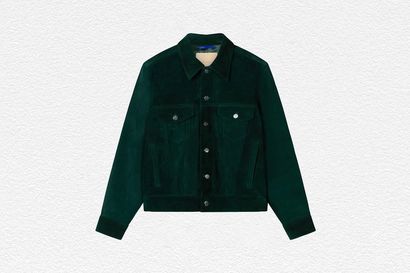The most iconic image of Steve McQueen is on two wheels. You know the one. He’s astride a Triumph TR6 Trophy, soaring over a barbed wire fence in The Great Escape. It’s the stuff of Boxing Day legend and movie-star fantasy — a famous, fabled jump McQueen will forever be associated with.
Except that it isn’t McQueen. That jump was performed by stuntman and mechanic Bud Ekins (remember his name). And the Triumph? It may be a remarkable ride, but it was by no means McQueen’s best. That mid-Sixties, easy-handling, off-roading honour goes to this: the Métisse Mk3.
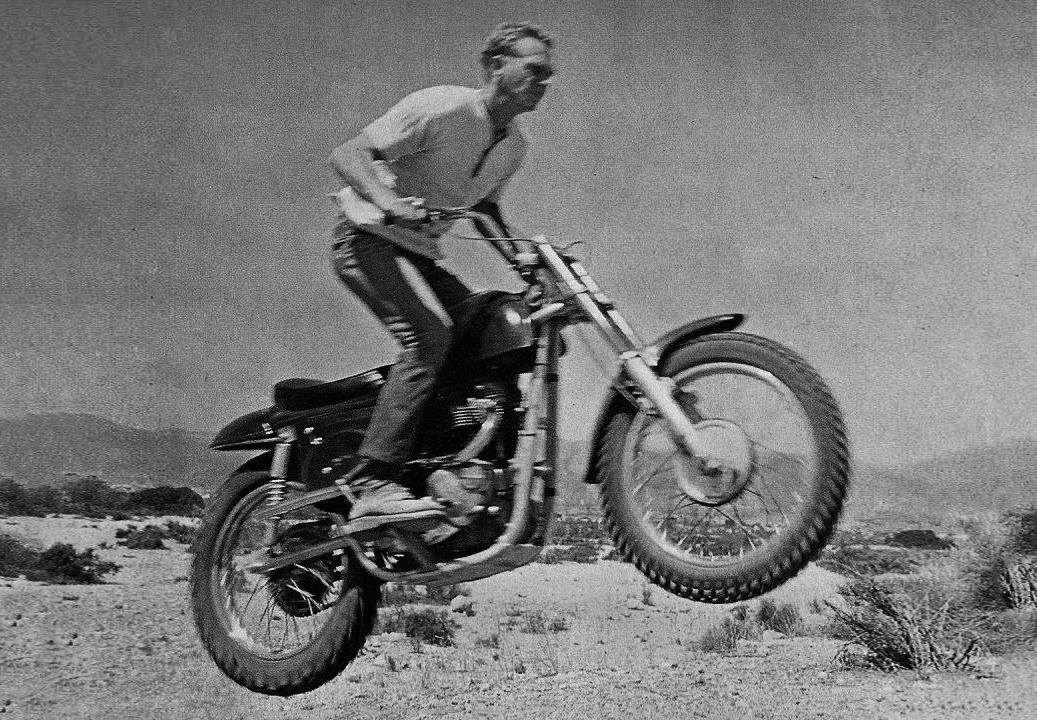
Or, more accurately, the Métisse Desert Racer. Despite famously riding many motorbikes on film (including the Triumph above and On Any Sunday’s 1970 Husqvarna 400 Cross) McQueen’s Métisse Desert Racer was the actor’s most personal bike — and the one he was most proud of. Why? In part, because he built it.
The year was 1966. Métisse, founded in Oxfordshire by brothers Derek and Don Rickman, was a successful motorcycle manufacturer. For a time, it was even the largest motorcycle manufacturer in Britain. Why so? Because its bikes were genuinely, unpretentiously good. They were reliably built, stylishly designed and ran powerful Triumph engines. What wasn’t to like?
And, because of their all-round abilities, many racers’ bike of choice was a Métisse. In the mid-60s, the Rickman brothers — having conquered Britain — set their sights across the Atlantic. Shipping several Métisse motorcycles to California, they unleashed their ferocious, versatile two-wheelers on the desert racing scene. And it was here that they caught the eye of Bud Ekins.


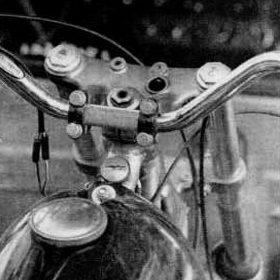
Remember that name? He was the stuntman from The Great Escape — and a very close friend of Steve McQueen’s. In fact, Ekins also drove the Ford Mustang 390 GT in McQueen’s 1968 film Bullitt — giving us another iconic cinematic moment. But he was so much more than a professional risk-taker. Ekins and his brother, Dave, were also accomplished mechanics, bike dealers and successful racers in their own rights.
And so, when the Ekins brothers saw the Rickman brothers’ invention, they knew it was something special. By the end of the year, Bud and Dave Ekins had become the official US importers of the Métisse frame kits. And, when Steve McQueen came to his friend looking for a bike perfectly suited for desert riding, Ekins knew exactly what to suggest.
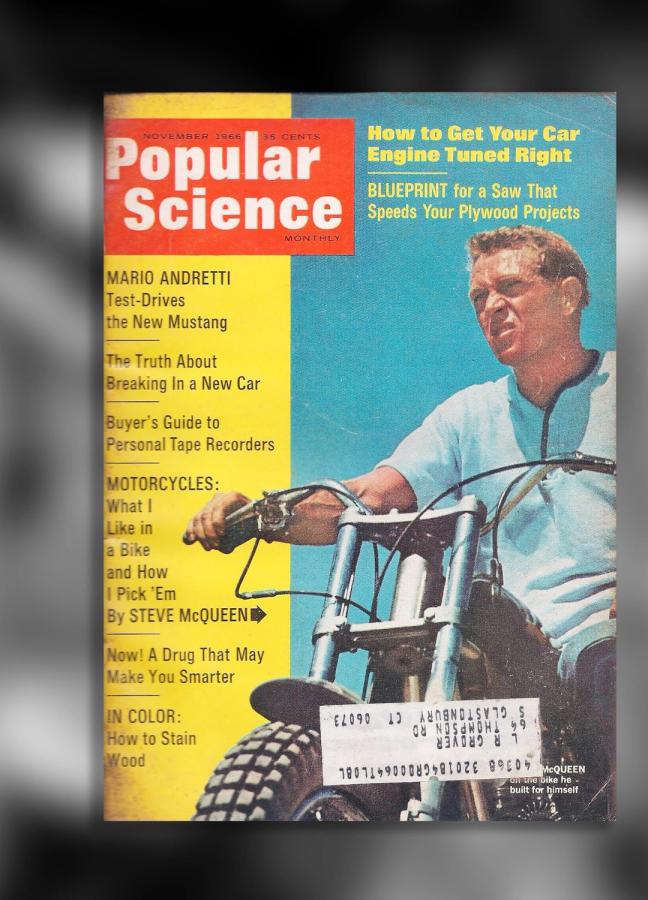
The Métisse Desert Racer that Bud Ekins and Steve McQueen built together was to become the blueprint of many an imitation and revival. In November 1966, McQueen appeared on the cover of Popular Science magazine — explaining, in meticulous detail, how he and Ekins customised his motorcycle and why he made those modifications.
Along with his favoured 650cc Triumph engine, many components were added from various other bikes to complement McQueen’s Métisse rig. He added a fork crown from BSA — as they were renowned for creating the strongest parts money could buy. “It’s real important for me,” McQueen wrote in the 1966 Popular Science article, “because I’ve hit bumps so hard sometimes that I’ve actually bent the handlebars”.
Derek Rickman himself helped sourced McQueen’s colour request — of utilitarian ‘Battleship Grey’. And the forks were sourced from Ceriani, an old Italian company that fabricated frames and suspensions. With a full 7.5-inches of travel, McQueen said that these forks made his rig more capable of taking the ruts and bumps of scrambling courses — “the kind of riding I’m mainly interested in”.
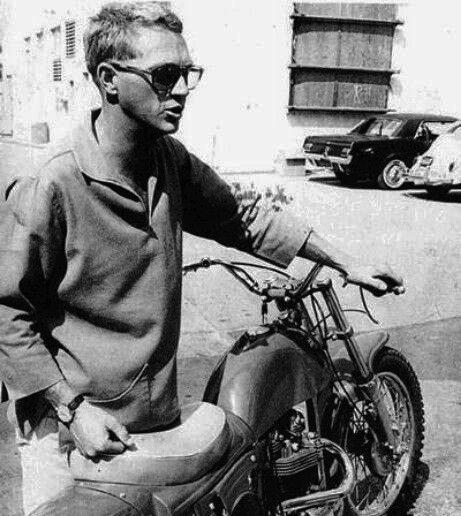
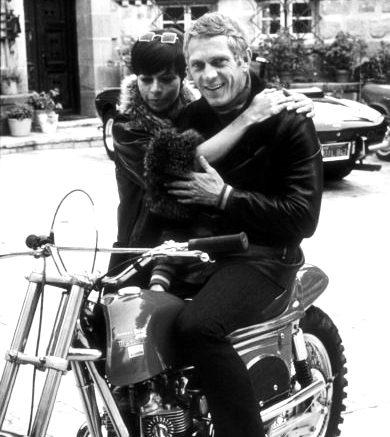
But, modifications aside, the Métisse frame itself appealed to McQueen for another standout reason. The frame essentially formed the ‘oil tank’ of the bike — meaning that the oil was exposed to a larger surface area and therefore stayed considerably cooler than if it were circulating from a conventional oil tank. This meant fewer breakdowns and piston seizures.
Couple this with the bike’s innate manoeuvrability — McQueen called his Métisse “the best handling rig I’ve ever owned” — and it’s no wonder the actor was so captivated by his Desert Racer.
Today, Métisse is owned by craftsman and erstwhile racer Gerry Lisi, who collaborated with McQueen’s Estate in 2008 to create an endorsed, limited run of 300 ‘Steve McQueen Desert Replicas’. With single carburettor TR6 engines and 4-speed transmissions, they boasted each and every one of McQueen’s modifications — from the Ceriani-type forks mounted in BSA yokes, to a single-sided Triumph front hub and box section footrests.
Many went to collectors, who unfortunately never intended to ride them — including one sold at Bonhams in 2010 for £11,500. So, if you do ever manage to get your hands on a Métisse Desert Racer, make sure to take it for a dusty spin in the Californian desert. It’s what McQueen would have wanted.
Want more McQueen? Here’s the story behind the actor’s iconic Persol sunglasses…
Become a Gentleman’s Journal member. Find out more here.
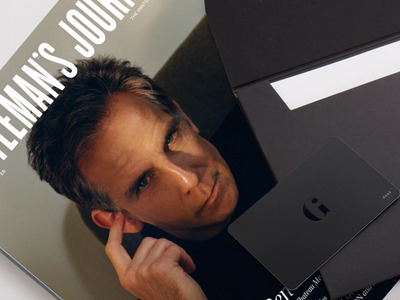
Become a Gentleman’s Journal Member?
Like the Gentleman’s Journal? Why not join the Clubhouse, a special kind of private club where members receive offers and experiences from hand-picked, premium brands. You will also receive invites to exclusive events, the quarterly print magazine delivered directly to your door and your own membership card.
